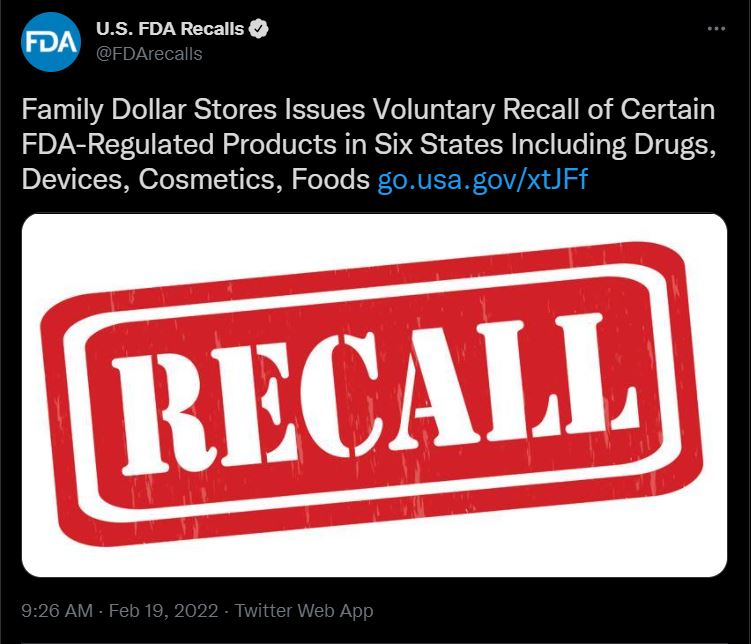Why There Are More Serious Product Recalls Than Ever Before
This article is more than 2 years old

More than ever, product recalls are happening on a daily basis. For consumers, this is worrying as some recalls aren’t widely advertised. It may also stop some consumers from buying that brand of product in the future, which is bad publicity. It raises paranoia and distrust around food and personal items.
If you own an item that is recalled, the official protocol is to throw away the affected item. Unless the company specifies they want it back for research and investigation into the problem. In the range of food calls, a lot of the time, they are done to be extra cautious rather than for human safety.
Many of the recalls are completed by the Food and Drug Administration (FDA), increasing their levels of monitoring in a number of areas of the retail marketplace. More awareness around the ingredients in the food we consume and the products we use has led to more recalls.
During a recall, food or product is removed from being sold to consumers because it doesn’t meet the standards set by the FDA or USDA’s legislation. The FDA covers a lot of food products and pharmaceuticals, while the USDA concentrates on poultry and meat. Most recalls are typically voluntary, involving the company removing their product from the market and working with safety officials to find the root of the problem.
There are several reasons why food may be recalled, including the contamination of the food product, a foreign object embedded in the product or its packaging, or an unlisted allergy that was added mistakenly to the product.
Personal protection products such as sunscreen have been recalled over the last number of years due to trace amounts of Benzene found within their formula. Benzene is a carcinogen that is consumed in high quantities or over a long period, could cause cancer.
Pharmaceutical product recalls are happening due to companies exercising great caution. It is usually due to reasons such as undefined amounts of a particular element added to their medicines and drugs. Recalling these products ensures that multi-national pharmaceutical companies are held responsible for what ingredients are present in their products.
Keeping informed about product recalls on the products you regularly use gives you, as a consumer, control over what you put in your body. The actual probability of you becoming sick from a product that has been recalled depends on why it was recalled and how severe the problem is. Individual consumer health plays a role also. Generally, the risk of harm is usually relatively low.
In a recent blood pressure medication recall, after further investigation, no adverse events were reported, which was good news for all. But if something had been awry, high blood pressure leads to heart disease, which kills a person every 34 seconds globally. This is the reason why pharmaceutical companies are overly cautious and usually recall the drug.
While drug, food or product recalls can seem scary or intimidating, they protect consumers from using products that aren’t fit for use and ensure companies who sell products are up to a safe standard.




